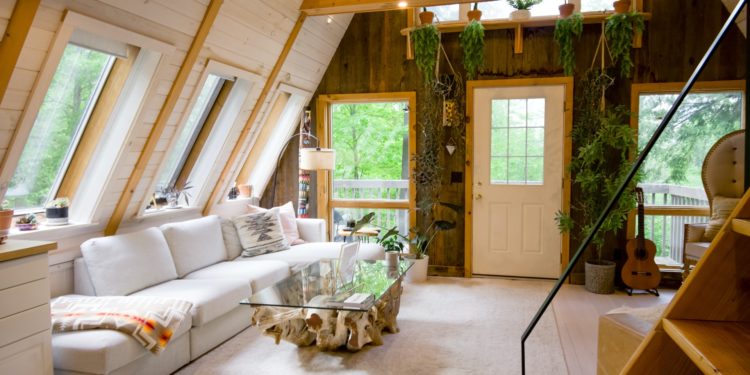Whether you’re a Premier Host on Vrbo or a Superhost on Airbnb, embracing sustainable and eco-friendly practices in your vacation rental can benefit both the environment and your business.
Today’s travelers are increasingly conscious of their ecological footprint and are seeking accommodation options that align with their values. By adopting sustainable practices, you can attract environmentally aware guests, reduce operating costs, and contribute to a greener planet.
In this comprehensive guide, we’ll explore sustainable strategies and practices that can enhance your vacation rental hosting experience.
Why Sustainability Matters in Vacation Rentals
Before delving into sustainable practices, it’s essential to understand why sustainability is crucial in the vacation rental industry:
Attract Eco-Conscious Guests: Travelers who prioritize sustainability seek accommodation options that reflect their values. By adopting eco-friendly practices, you can attract a growing market segment.
Cost Savings: Many sustainable practices can lead to reduced utility bills and operational costs. Energy-efficient appliances, LED lighting, and water-saving fixtures can save you money in the long run.
Positive Brand Image: Hosting sustainably can enhance your brand’s image and reputation. It signals to potential guests that you care about the environment and are committed to responsible tourism.
Compliance with Regulations: In some regions, there may be regulations or incentives for eco-friendly accommodations. Staying compliant with such requirements can help you avoid legal issues.
Sustainable Practices for Your Vacation Rental
Now, let’s explore sustainable practices that you can implement in your vacation rental:
1. Energy Efficiency
Energy-efficient appliances: Invest in Energy Star-rated appliances, which consume less energy and reduce utility bills.
LED lighting: Replace traditional incandescent bulbs with LED lighting. LED bulbs are long-lasting and use less energy.
Smart thermostats: Install smart thermostats that can automatically adjust the temperature when the property is unoccupied.
2. Water Conservation
Low-flow fixtures: Install low-flow showerheads, faucets, and toilets to reduce water consumption.
Leak detection: Regularly inspect and repair any water leaks to prevent water wastage.
Greywater recycling: Consider systems that recycle greywater from sinks and showers for landscape irrigation.
3. Waste Reduction
Recycling bins: Provide clearly labeled recycling bins for guests to separate recyclables from trash.
Composting: If possible, set up a composting system for organic waste.
Reusable amenities: Offer reusable amenities such as cloth towels and napkins instead of disposable ones.
4. Green Cleaning
Eco-friendly cleaning products: Use environmentally friendly cleaning products that are non-toxic and biodegradable.
Laundering practices: Encourage guests to use towels and linens more than once to reduce the frequency of laundry.
Air-drying: Whenever possible, air-dry linens instead of using a dryer to save energy.
5. Sustainable Supplies
Recycled and organic products: Choose recycled and organic materials for bedding, towels, and amenities.
Local and fair-trade products: Source locally and opt for fair-trade products to support the community and promote ethical practices.
Bulk toiletries: Provide shampoo, conditioner, and soap in refillable bulk dispensers instead of single-use bottles.
6. Renewable Energy Sources
Solar panels: If your property allows, consider installing solar panels to generate clean energy.
Wind turbines: In areas with sufficient wind, wind turbines can be a renewable energy source.
Green energy providers: Opt for energy providers that source electricity from renewable sources.
7. Smart Home Technology
Energy monitoring: Use smart home systems that allow you to monitor and control energy consumption remotely.
Keyless entry: Implement keyless entry systems to eliminate the need for physical keys, reducing waste.
Home automation: Install home automation systems to optimize lighting and heating/cooling based on occupancy.
8. Eco-Friendly Landscaping
Native plants: Choose native plants for landscaping, which require less water and maintenance.
Rainwater harvesting: Collect rainwater for irrigation purposes, reducing the need for additional water sources.
Permeable surfaces: Use permeable materials for driveways and walkways to reduce water runoff.
9. Education and Awareness
Guest guidelines: Provide guests with guidelines on sustainable practices, such as using public transportation or conserving water.
Local attractions: Share information about eco-friendly local attractions and activities guests can enjoy.
Carbon offset programs: Consider participating in carbon offset programs and offer guests the option to contribute.
Challenges and Solutions
While transitioning to eco-friendly hosting can be rewarding, it may also come with challenges:
Initial Costs: Investing in energy-efficient appliances or renewable energy sources may require an upfront investment. Consider the long-term savings and potential for increased bookings.
Guest Education: Some guests may not be familiar with sustainable practices. Provide clear instructions and educational materials to help them embrace eco-friendly habits during their stay.
Maintenance: Sustainable features like solar panels or rainwater harvesting systems may require occasional maintenance. Ensure that you have a plan in place to address any issues promptly.
Local Regulations: Be aware of local regulations or restrictions related to sustainability practices. Consult with local authorities if necessary.
The Future of Eco-Friendly Hosting
Eco-friendly hosting is not just a trend; it’s a movement that aligns with a growing global awareness of environmental issues. Travelers are increasingly seeking accommodations that minimize their ecological impact, making sustainable practices a valuable asset for hosts.
Conclusion
As you continue to prioritize sustainability in your vacation rental, keep an eye on emerging eco-friendly technologies and practices. Staying up-to-date with the latest innovations can help you remain competitive in the evolving travel industry.
Remember that eco-friendly hosting isn’t solely about reducing your property’s environmental footprint; it’s also about creating memorable and meaningful experiences for your guests. By offering an eco-conscious stay, you contribute to a more sustainable and responsible travel culture—one that benefits both the planet and your vacation rental business.


![7 Best POS Software in the UK [2026 Edition]](https://todaynews.co.uk/wp-content/uploads/2026/02/7-Best-POS-Software-in-the-UK-2026-Edition-360x180.png)










































































